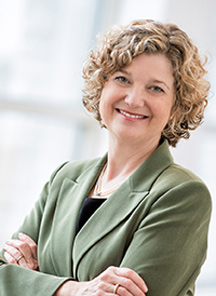STUDENTS WILL GET PERSONALIZED MENTORING FROM COACHES
The same faculty who teach in the schools’ other graduate programs will teach courses to students in the Kelley-Manchester Global MBA degree program. Students will receive personalized mentoring and feedback from career coaches, advisors and professors, following in the tradition of Kelley’s full-time MBA curriculum which emphasizes personal development, teamwork and experiential learning.
Other than the typical university approval process which slowed things down, the negotiations went smoothly, says Soni, largely because of the schools’ similarities and lack of overlap. “If you look at Manchester, it is a full service school with an undergraduate program, several MBAs and MS programs,” explains Soni. “It is similar in the size of our classes, the size of our faculty, and offerings. The synergies are amazing. We operate in India, Korea, and South Africa. They operate in China, Singapore, the Middle East, and Hong Kong. We both do things in Brazil and have the same partner in Sao Paolo.”
Manchester’s centers all over the world will figure prominently in the global MBA’s delivery, but students will start the program with a three-to-four day residency in Bloomington before going online. “We will offer courses online and Manchester will do courses where students come to their facilities from time to time,” explains Soni. “It is a lockstep program but students can opt out of a semester and pick it back up with the next cohort.” Students will complete the program with capstone project, working in teams to solve a corporate challenge.
‘STUDENTS WILL GET A MUCH DIFFERENT WORLD VIEW’
One novel feature of the global MBA is a residential component in Washington, D.C. during the fall term in the second year. But the schools believe the true appeal of the program is its global nature, its flexibilty, and the fact that graduates will get two degrees, one from each institution. Unlike other Kelley partnerships with other schools, where most students come from a single country or region of the world, the expectation for this new partnership is to put together truly global classes of students.
“What makes this different will be the global nature of people in the program,” says Dean Kesner. “It will give those students a much different world view. It is different for our faculty because we will teach to a much more diverse and integrative body of international students. It’s not just students going to global locations, it’s students working on multi-cultural global teams.”
Soni described the target students as working professionals who have a global view and about six to seven years of experience. “It is an MBA with a global executive track,” Soni adds. “We are shooting for around 40 students in the first cohort and hope to get 50 to 60 in the following one.”
The partnership, moreover, will likely lead to other joint programs. “This offers us opportunities to work with Mancheter in other areas as well, particularly in executive education,” adds Soni. “We have one in the works where we will do the American part of the program for a global company and they will do the European part. There is some discussion of faculty research collaboration and we are also starting to talk about collaboration on the undergraduate level as well.”






Questions about this article? Email us or leave a comment below.